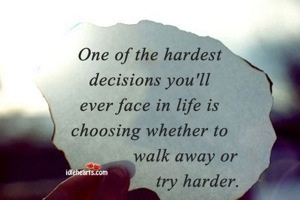Valeria Maltoni in her post ‘The Relationship of Value and Influence‘ addresses an important issue: while the best decisions require diversity, how can we get consensus in a very diverse group?

On one side, we tend to stick with people that are similar – and this is magnified by social media to a dramatic level: “While social media has enabled anyone to reach anyone else on the planet, the truth is that we tend to pay attention more readily to people who think and act like us. Nature has given us a compelling reason to do that — nobody survives alone. Humans band together, it’s our instinct.”
On the other hand, “Research has demonstrated that diversity enhances our ability to explore new ideas, allowing us to see a problem from different points of view. More variety in how people think about an issue is a strength“
However, “a meta-analysis of 108 studies and more than 10,000 teams# found that diversity hinders consensus“. How can we address this conundrum?
Valeria Maltoni suggests to have some diversity, but not too much, so as not to hinder the consensus-building mechanism. This may not be the best solution, and is definitely not applicable in some situations (e.g. democracy).
We need to make the effort to consider and learn from alternative views and include diversity in our intellectual consciousness. And we need to devise processes that fit with the requirements of decision-making in the specific situation, while allowing diverse viewpoints to be expressed. This is a major challenge for the collaborative age, as we can see daily. Specific research may be needed to provide new formats and tools for consensus building, that may include more direct voicing of opinions in a structured manner.











